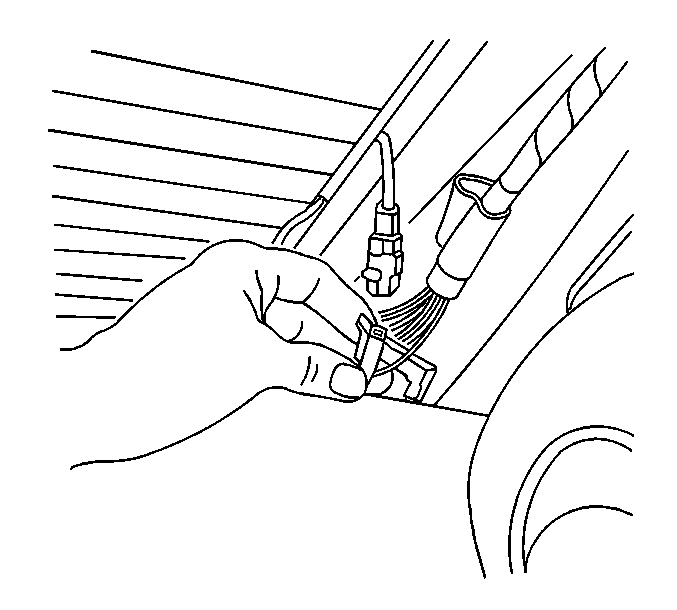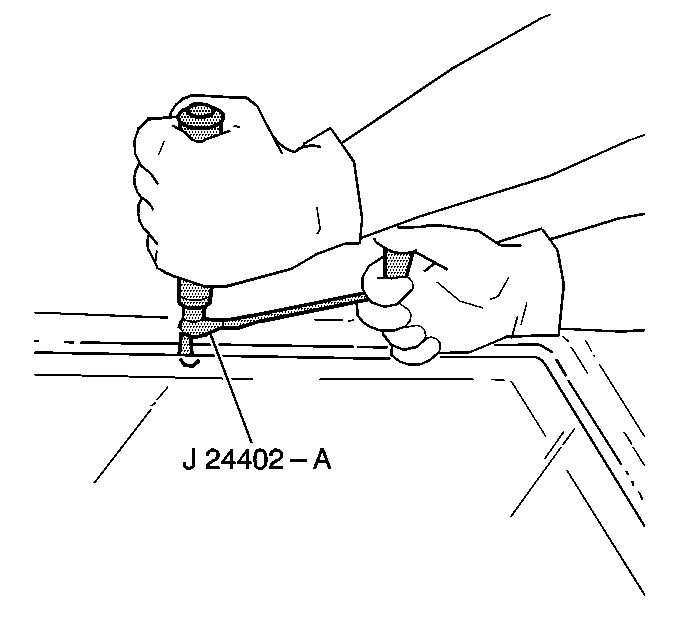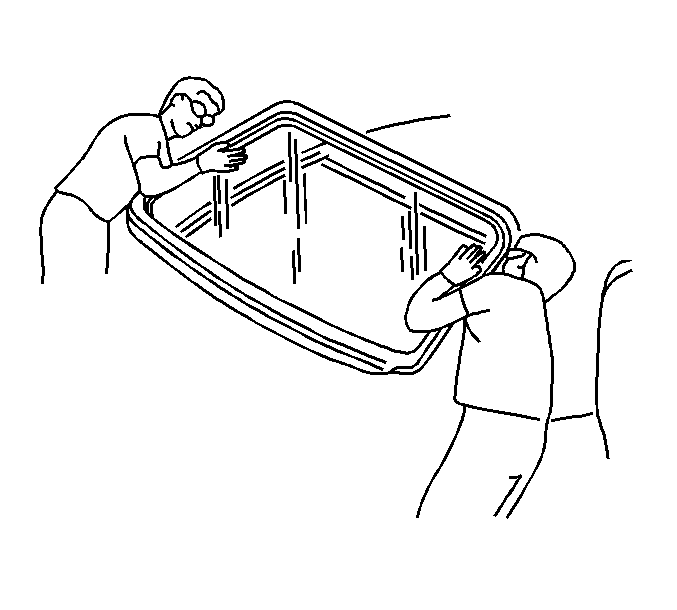Caution: If a window is cracked but still intact, crisscross the window with
masking tape in order to reduce the risk of damage or personal injury.
Important: Before cutting out a stationary window, apply a double layer of masking
tape around the perimeter of the painted surfaces and the interior trim.
- Open the rear compartment lid in order to access the reveal molding (1).

- Remove the rear window
reveal molding (1). Refer to
Adhesive Installation of Stationary Windows
.
- Remove the OnStar™ antenna. Refer to
Mobile Telephone Antenna Inner Coupling Replacement
and
Mobile Telephone Antenna Outer Coupling Replacement
in
Cellular Communication.
- Remove the rear seat cushion. Refer to
Rear Seat Cushion Replacement
in Seats.
- Remove the rear seat back. Refer to
Rear Seat Back Replacement
in Seats.
- Remove the rear quarter trim panels. Refer to
Rear Quarter Upper Trim Panel Replacement
in Interior Trim.
- Remove the headliner. Refer to
Headlining Trim Panel Replacement
in Interior Trim.
Caution: If broken glass falls into the defroster outlets, it can be blown into
the passenger compartment and cause personal injury.
- Cover to protect the following parts from broken glass:
| 8.2. | Defroster outlets and A/C outlets |

- Disconnect the rear window
electrical connectors.

Important: Keep the cutting edge of the tool against the window.
- This will allow the urethane adhesive to be separated from the window.
| • | Leave a base of urethane on the pinchweld flange. |
| • | The only suitable lubrication is clear water. |
- Remove the rear window reveal molding.
| 11.1. | Grasp the lower corner of the rear window reveal molding by hand
and slowly pull the reveal molding away from the rear window. |
| 11.2. | If the rear window reveal molding will not release, use a utility
knife in order to cut around the rear window in order to remove the rear
window reveal molding. |

- With the aid of an assistant,
use the suction cups in order to lift the rear window from the opening.





